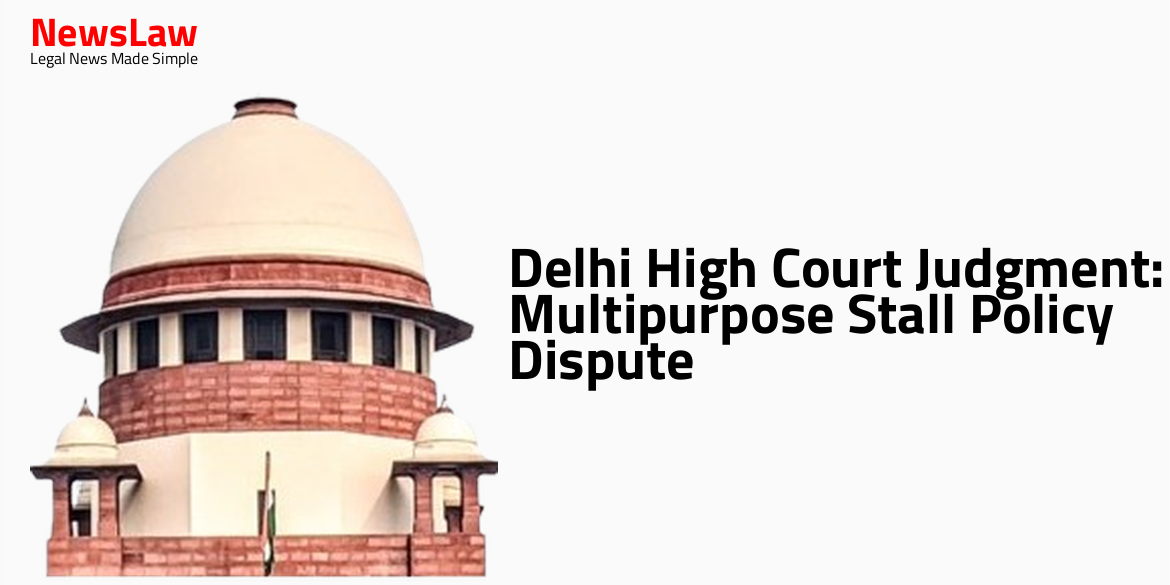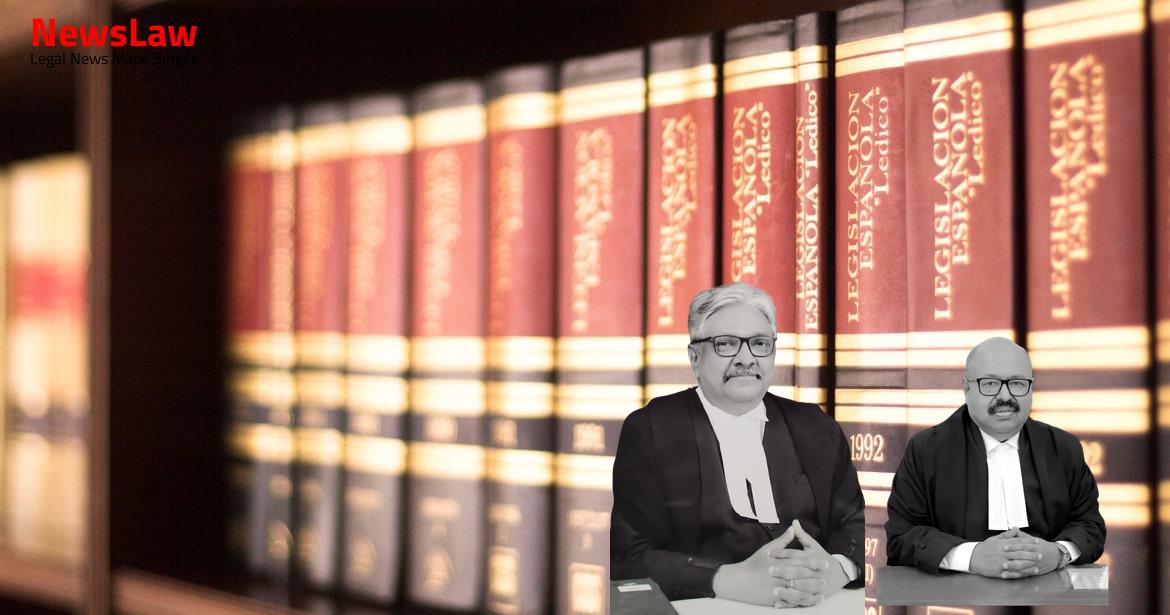In a significant legal development, the Delhi High Court has delivered a crucial judgment on the Multipurpose Stall Policy dispute. The case involved stakeholders from the commercial sector, including the petitioners and respondents. The court’s decision sheds light on critical aspects of license renewal and policy implementation in this sector.
Facts
- The tenure of petitioner’s licenses was initially until 21.12.2022, but extended to 27.02.2023 due to Covid-19 lockdown.
- There was explicit provision in the agreement against extension or renewal.
- Petitioner 2 and Respondent 2 signed a Master License Agreement on 29.10.2021.
- Petitioners challenged Clause 5 and Clause 11 of the 2017 Policy by Railway Board in Delhi.
- Petitioner 3 and Respondent 2 executed a Master License Agreement on 17.08.2020.
- Petitioners were directed to vacate their MPS by 27.02.2023.
- Petitioner 1 operates three MPS, Petitioner 2 operates one MPS, and Petitioner 3 operates one MPS at various railway stations.
- The petitioners were compelled to convert their stalls/trolleys to MPS in 2017 under Commercial Circular No. 61 of 2017.
- The petitioners and Respondent 2 formalized the license arrangement through Master License Agreements on respective dates.
Arguments
- Petitioners argue that the 68-day extension of the contract due to Covid-19 is arbitrary and unfair compared to longer extensions granted to other MPS units in different railway zones.
- They point out that foot traffic at railway stations significantly declined post-lockdown, leading to a reduction in license fees from June 2020 to March 2022, and they request a proportional extension of the license period to reflect this fee reduction.
- Petitioners rely on various legal precedents to support their argument, including cases like Jayaswals Neco Ltd. v. Union Of India, Malini Mukesh Vora v. Union of India, and others.
- They contest Clause 5 of the 2017 Policy, claiming it violates constitutional rights by removing the right to license renewal and forcing existing licensees to compete against larger companies.
- Petitioners seek a writ of mandamus to compel relevant zonal railways to renew and extend their licenses, asserting that they have a legitimate expectation for license renewal based on the Supreme Court’s judgment in South Central Railways (supra).
- The petitioner signed a contract for a period of five years which was non-renewable.
- The petitioner cannot now claim ignorance as the terms of the contract were clear from the beginning.
- The petitioner enjoyed the benefits of the contract for the entire duration of five years.
- The judgment of the Supreme Court referred to by the petitioner was related to Catering Policy, not the Multipurpose Stall Policy in question.
- The petitioner cannot retroactively seek to be governed by policies that do not apply to their contract.
- The contract in question falls under a different policy than the Catering Policy referred to by the petitioner.
- The court rejected the petitioner’s attempt to rely on past policies after the completion of the contract term.
Analysis
- The 2017 Policy provides for a 33% sub quota for women in allotment of each reserved category of MPS at all stations.
- Clause 9 of the 2017 Policy specifically allows reservation in allotment for marginalized sections of society.
- The appellants do not have an indefeasible right of renewal under the Easements Act or the policy.
- The petitioners voluntarily converted their stalls/trolleys to MPS based on letters from the Railway Board.
- There was no clause like Clause 5 of the 2017 Policy before the Supreme Court.
- The 2017 Policy safeguards the rights of marginalized minorities and weaker sections of society in line with constitutional principles.
- The policy ensures reservation and allocation of MPS units exclusively to eligible individuals from reserved categories.
- The petitioners’ legitimate expectation for license renewal lacks merit as per Clause 5 and 11 of the 2017 Policy.
- Granting a license in perpetuity would go against the revocable nature of licenses and equality of opportunity.
- Petitioners seek renewal/extension despite no provisions for it in the 2017 Policy/Master License Agreement.
- The specific part of the judgment examines the arguments made by the parties involved.
- The court analyzes the legal provisions and relevant precedents in relation to the case.
- It discusses the implications of the arguments presented by both parties.
- The judgment provides a detailed examination of the issues raised during the hearing.
- The court’s decision is based on a thorough evaluation of the facts and legal principles involved.
- Courts have the jurisdiction to declare the law as unconstitutional
- Judicial review of a policy decision and issuing mandamus for framing policy are distinct
- Public bodies cannot arbitrarily decline to renew a license
- A decision not to renew a license should have a rational purpose unless there are compelling reasons
- Mandamus cannot be issued to direct enactment of laws or framing of rules
- Mandamus lies for enforcement of fundamental rights or statutory rights
- Individual license agreements and the 2017 Policy contain an arbitration clause for grievances related to the Covid-19 situation.
- Petitioners can invoke the arbitration clause to claim damages or address insufficiency of extension due to Covid-19.
- The arbitration clause allows petitioners to initiate appropriate proceedings for resolution.
Decision
- Existing stalls/trolleys have the option to convert into Multi Purpose Stalls (MPS) as per the 2017 Policy.
- Existing licensees given two options: convert to MPS or continue with existing stalls/trolleys till expiry of current agreement.
- Petitioners opted to convert to MPS for a tenure of 5 years.
- Space to be standardized and allotted for new MPS after current agreement expires.
- Petitioners requested conversion of their stalls/trolleys to MPS and agreed to revised fees.
- Existing stalls/trolleys must pay License Fee quoted for similarly placed MPS unit for conversion.
- Current batch of petitions held maintainable and disposed of accordingly.
- Petitioners granted 3 months from the extended license period to vacate stalls after dismissal of petitions.
Case Title: SHRI ASHOK M. SHAH Vs. UNION OF INDIA & ORS. (2024:DHC:4452)
Case Number: W.P.(C)-6409/2024



